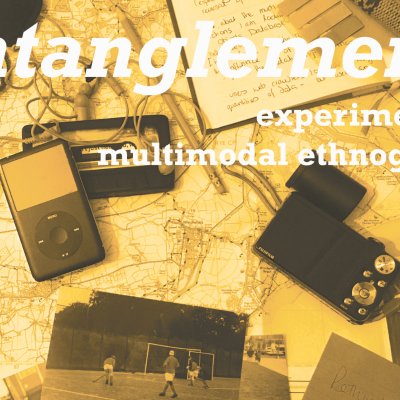Arriving at Cambridge with a visual impairment presents challenges, but for Harshadha Balasubramanian , it throws up unexpected opportunities as well.
Thanks to clumsy wording – “blindness”, “visual impairment” – when we hear of sight loss we think by default in terms of deficiency, a person manqué, drastically different from fellow humans who are apparently whole.
Such terminology obscures the fact that sight loss can also be an excellent opportunity for the individual and their surroundings to undergo some positive changes. As one who fully satisfies all of the above conditions, a few weeks living and studying in Cambridge was enough for me to acknowledge this truth.
On an individual level, sight loss may threaten to confine you in social and intellectual darkness, but can also fling the doors open to fresh light. Problem-solving skills, wild imagination, and confidence can actually be built on the loss of sight. But how?
Think of your first Michaelmas term! After having spent hours listening to a screen-reading software monotonously announcing the glory of each event and society, you eventually admit you can’t attend most of them. They are located in vague corners of Cambridge you have not yet ventured to, and you can feel them mockingly glaring out of a Google Map you cannot read.
It is often possible, as I do, to drag reluctant friends along, desperately try to learn your own way between lectures, essay deadlines, and rowing outings, or, indeed, gently harass an organiser to walk there and back with you. Finding the first and last options rather uncomfortable, and the second occasionally unfeasible, I decided instead to organise my own events and assist in starting up non-profit endeavours, gladly helping myself to some leadership and event management skills at the same time. Sight loss does not have to mean defeat.
Similarly, the detrimental impact of sight loss can often result in the sharpening and growing appreciation of other senses, especially as you dodge between Cambridge’s spellbound tourists and its equally stubborn and obstructive trees on Sidgwick Avenue. Doing all of this and still arriving at 9am lectures is bound to boost any individual’s confidence.
Sight loss has also proven an opportunity to come upon original interpretations in academia. As a student of Social Anthropology, it’s perhaps only normal, albeit impractical, that I watch ethnographic film. The absence of vision here has enabled me to grasp that understanding the “other” in Social Anthropology can frequently shed light on one’s own cultural reality, specifically the fact that we all have vastly contrasting ways of perceiving the world, even whilst sharing common nationalities, values, and interests. Developing these ideas to further and more powerful insights comes easily with a wild imagination, especially that stretched from years of addressing questions from the brain that the eyes cannot answer.
The paralympic sport Goalball demonstrates the creativity of people affected by sight loss, determined not to be inhibited by prevailing cultural attitudes. It consists of blindfolded players aiming to score goals with a ball that contains bells for sound recognition. This venture has put Cambridge on the Goalball map; two of the city’s players currently compete on the British team and are potential Rio 2016 paralympians.
My dedication to rowing encouraged Selwyn College Boat Club to go out of their way to make me feel at home in a boat. From simple things like attaching a straw to blades for tactile marking, to planning in numerous individual training sessions, to providing focused technical coaching, they have taken the leap, paving the way towards more accessible rowing at Cambridge.
Sight loss wakes us up to the fact that our built environments only suit certain needs and not others - of which those resulting from sight loss are only a small proportion. Most government policies seek to understand how the environment can best tackle the medical consequences or economic problems experienced by those with a visual impairment, often without considering the importance of reforming attitudes towards such disabilities and appreciating the innumerable contributions of those affected.
In Cambridge, I witness such small changes occurring as those going about their daily routine on a busy bridge pause to make way or move obstacles as I approach.
They consciously recognise the difficulties of the environment, and take responsibility to rebuild it for others. Such considerations improve all pedestrian journeys, regardless of sight loss. They also make other people aware that their surroundings are not in any sense finished or complete; they don’t have to stay exactly as they are, and can be remade to the benefit of all through the smallest of actions and considerations.
We must continue to search beyond the negativity generated by the rhetoric of “lacking” to become more aware of the abundance of brilliant opportunities ignited by sight loss, of which this article is indeed one. Undoubtedly, there is still much that the individual and our surroundings have to undertake, but my experiences suggest that both can gain as much as they lose from visual impairment.
Varsity is the independent newspaper for the University of Cambridge, established in its current form in 1947. In order to maintain our editorial independence, our print newspaper and news website receives no funding from the University of Cambridge or its constituent Colleges.
We are therefore almost entirely reliant on advertising for funding, and during this unprecedented global crisis, we expect to have a tough few months and years ahead.
In spite of this situation, we are going to look at inventive ways to look at serving our readership with digital content and of course in print too.




